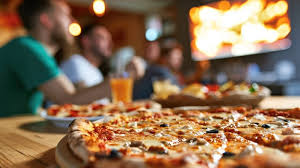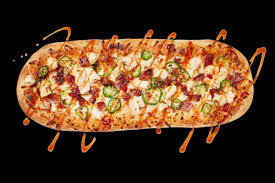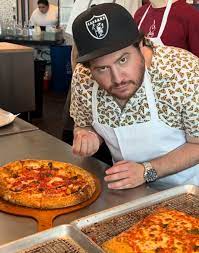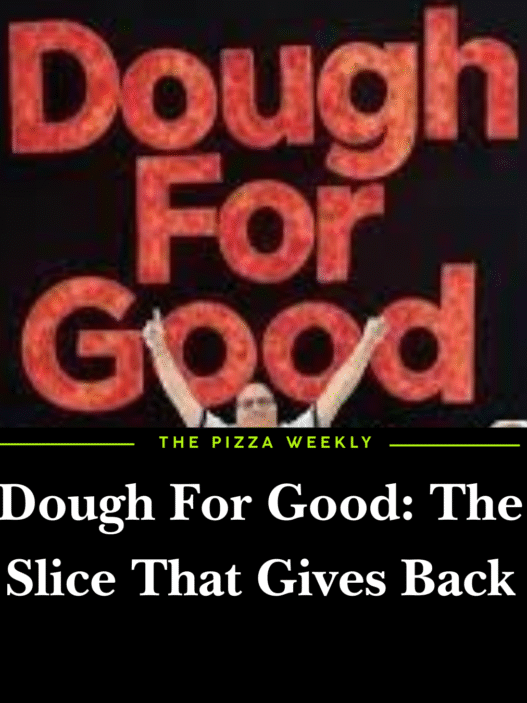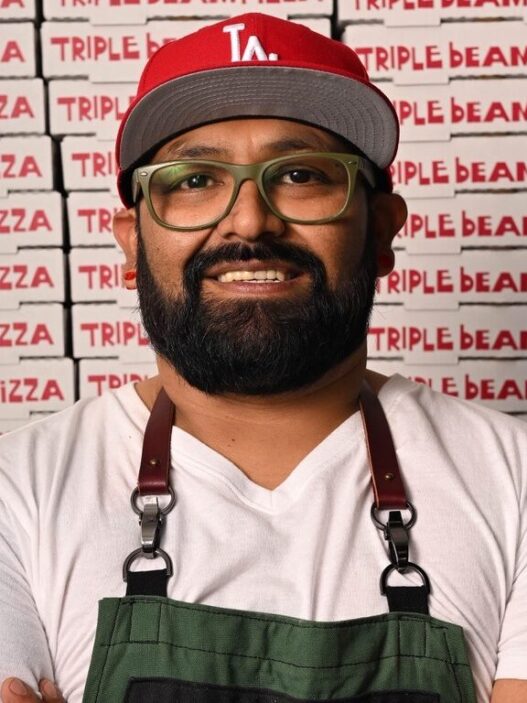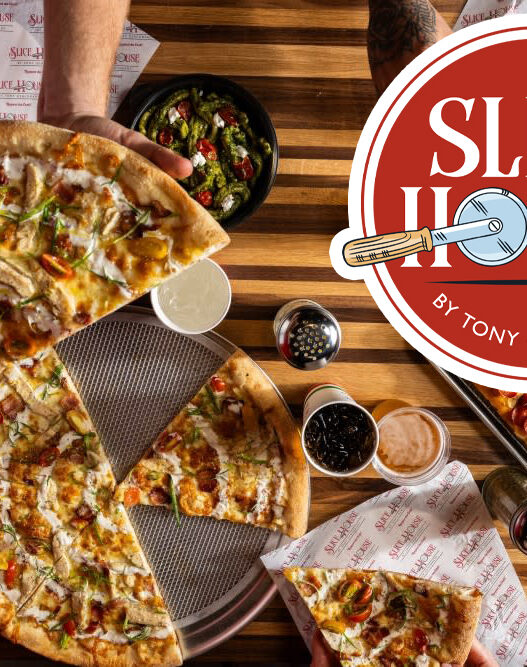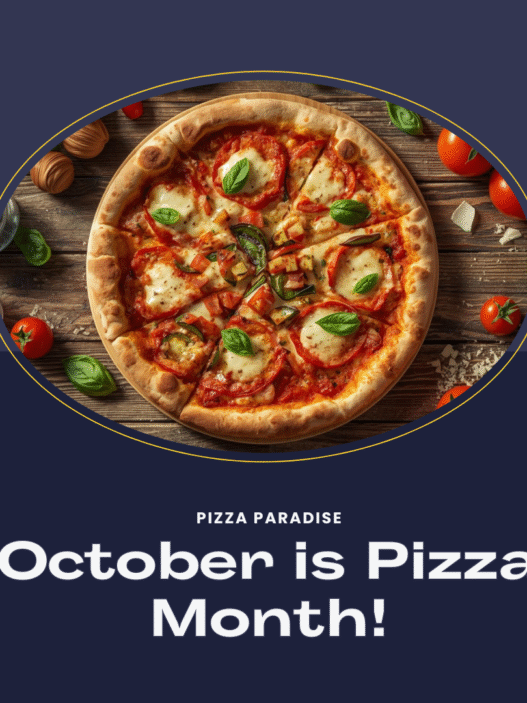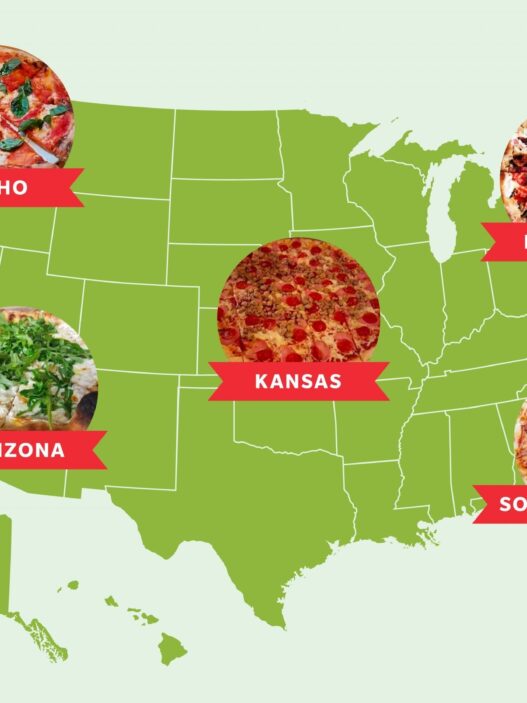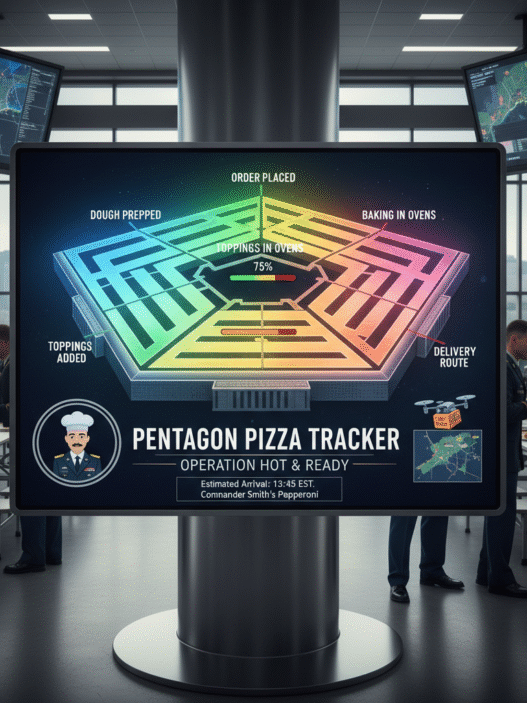In Chicago, pizza is as much an identity as it is a meal. Ask ten locals what defines the city’s pie and you’ll likely hear ten different answers, each delivered with unwavering certainty. But Anthony Scardino better known as Professor Pizza has built his reputation on sidestepping those arguments altogether. For him, the debate isn’t Chicago versus New York, deep dish versus thin, purist versus innovator. It’s simpler, more generous.
“There is pizza for everyone,” he said in a recent conversation, his voice carrying the certainty of someone who has made dough his life’s work.
That phrase, delivered without pretense, isn’t a slogan. It’s a worldview. In Scardino’s hands, pizza isn’t a battleground. It’s a classroom, open to anyone who cares to listen, eat, and learn.
A First Bite in New York
Every lifelong passion begins somewhere, often in a moment too small to recognize at the time. For Scardino, it was his first memorable slice of pizza, eaten was New York Slice . It wasn’t about the shop or the neighborhood but the impact: thin, foldable, hot enough to scald, and unforgettable.
That slice marked him. “New York,” he recalled when asked. The word landed with weight, as though the place itself had taught him something fundamental. For him, pizza was not just sustenance. It was possibility.
The Hot Dog Stand Mindset
Long before his name appeared on Chicago restaurant marquees, Scardino was absorbing lessons at his uncle’s hot dog stand . It was not glamorous work, but it proved formative.
“What I learned there was mindset and loving what you do,” he said.
That deceptively simple insight became a psychological foundation. Technical skills can be taught; mindset cannot. The stand showed him that food service wasn’t only about recipes but about the energy a cook brings to the counter. If you carry pride in your work—whether it’s stretching dough or steaming buns customers taste it.
It’s a lesson that still informs how he runs his own kitchens.
Apprenticeship With the Masters
When Scardino decided to take pizza seriously, he sought out the best. He trained under Tony Gemignani, a 13-time world champion celebrated for mastering more than a dozen distinct pizza styles,
From Gemignani, Scardino learned discipline and precision: how a gram of flour, an extra hour of fermentation, or five degrees in oven temperature can separate mediocrity from mastery. he absorbed the art of teaching, the ability to translate complex technique into approachable guidance.
Taken together, those lessons shaped the persona of Professor Pizza. He is not just a maker of pies but a conveyor of knowledge, a man who builds kitchens as classrooms.
The Laws of the Kitchen
Every teacher sets rules. Scardino has two he calls “pizza laws,” and he insists that every new hire learns them.
The first is dough stretch. A pizza maker must understand elasticity, must move with the dough rather than against it. Push too hard and it resists. Work with it patiently and it gives. The law is technical, but also metaphorical. Success comes from respect, not force.
The second is dough excellence. This is not about one perfect toss but about honoring every stage of the process: the choice of flour, the mix, the fermentation, the proof, the bake. Excellence comes from attention at every step.
Together, these laws do more than shape pizza they shape culture. They set non-negotiables, anchoring a kitchen in shared values. “Dough is sacred,” Scardino insists, and his team learns quickly that he means it.
Comfort in Meatballs
Pizza may be his canvas, but his favorite childhood dish was his grandmother’s meatballs. They are his reminder that food is memory before it is menu. Meatballs meant Sunday dinners, crowded kitchens, and a grandmother’s hands shaping each one with care.
That memory still influences him. When he builds a pie, he isn’t chasing novelty alone. He’s chasing that same emotional resonance a flavor that makes you feel, that makes you remember.
Pineapple and the Politics of Belonging
Few debates in food culture are as enduring, or as polarizing, as pineapple on pizza. For some, it is a culinary crime. For others, a sweet-savory delight.
Scardino shrugs. “There is pizza for everyone,” he repeated when asked.
The answer, at once diplomatic and disarming, cuts through decades of online shouting. For him, pineapple is neither blasphemy nor salvation. It’s just another option in a world big enough to hold them all.
Chicago, New York, and the Question of Competition
That same refusal to compete extends to geography. When asked about the rivalry between Chicago and New York, Scardino waved it off. He doesn’t believe in pitting styles against one another.
“There’s something for everyone,” he said.
It’s not a dodge—it’s a declaration. In an industry where identity often rests on opposition, Scardino finds room for coexistence. Deep dish, tavern thin, New York slice, Detroit square: each has its place. His brand of inclusivity resists easy categories and demands curiosity instead of judgment.
Teaching Through Pizza
Scardino’s restaurants lean into the professor persona. He frames dining as education, each pizza a lesson. Customers may not realize they’re learning about fermentation or stretch, but they leave with new respect for the craft.
Young cooks in his kitchens absorb “pizza laws” alongside recipes. Diners discover how nostalgia and innovation can share the same plate.
Watching Scardino, one sees both craftsman and instructor: a man who moves with precision, then pauses to explain why it matters. He is as much philosopher as pizzaiolo, more interested in what the pie teaches than what it proves.
The Challenge of Relevance
Late in the conversation, I asked him what question he wished more interviewers would pose. He paused before answering.
“There is always something,” he said. “How do you avoid being yesterday’s news? You have to always think of yourself as today’s news, to stay relevant.”
It was an answer that reached far beyond pizza. Relevance, in his telling, isn’t about trend-chasing or gimmicks. It’s about staying present, honoring today’s work as if it were your first, not your hundredth. It’s the same principle he learned at his uncle’s hot dog stand: mindset matters. If you love the doing, if you stretch the dough with care, if you treat every slice as today’s slice, relevance takes care of itself.
Anthony Scardino does not claim to have solved the puzzle of pizza. He doesn’t try to settle the pineapple debate or crown Chicago or New York as king. Instead, he invites everyone to the table, insisting that each slice has its place and each eater their preference.
In his classroom, pizza is never static. It is alive, evolving, and inclusive. His grandmother’s meatballs remind him of where he started; his training under masters pushes him toward precision; his pizza laws remind his team that excellence is non-negotiable.
And his philosophy be today’s news keeps him reaching forward. Pizza, after all, is not about yesterday’s slice. It’s about the one hot out of the oven, right now, ready to be shared.
“There is pizza for everyone,” he says. And in Scardino’s world, there always will be:)






